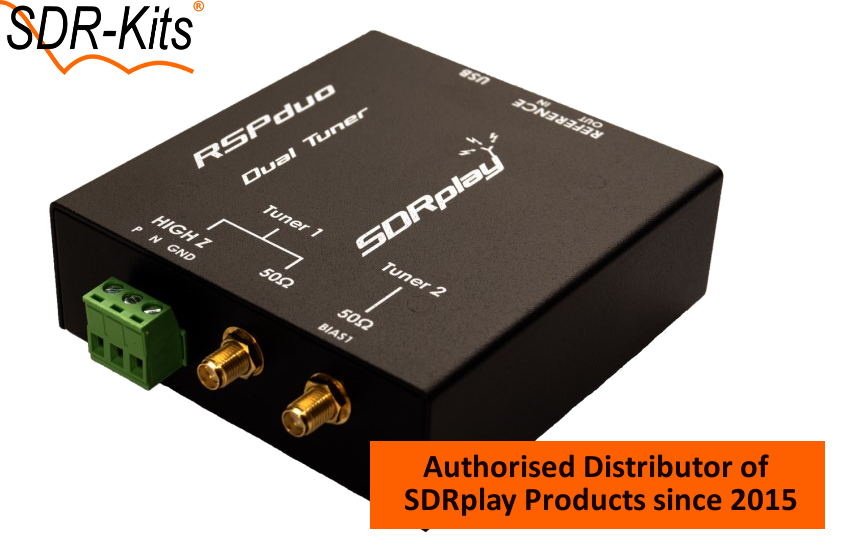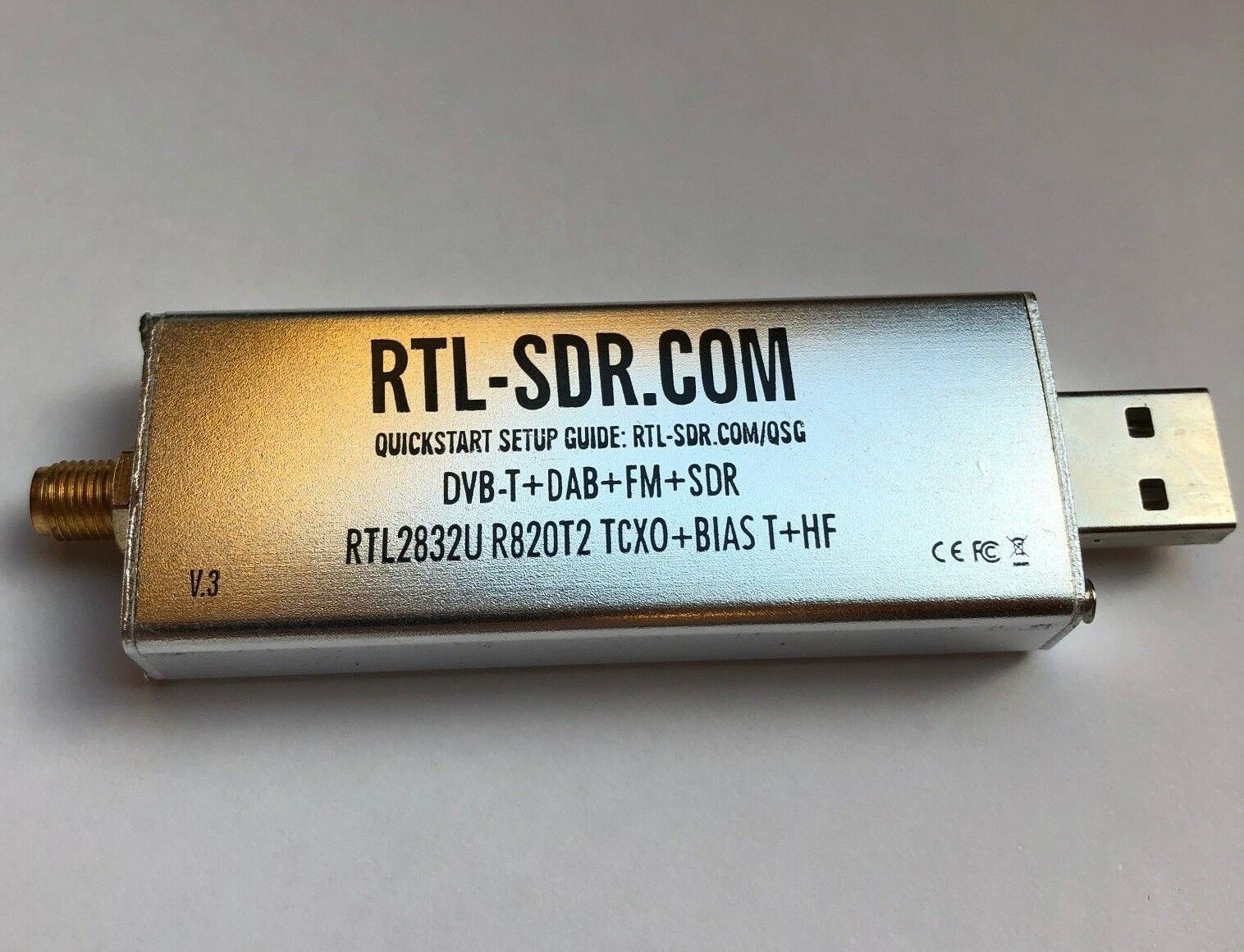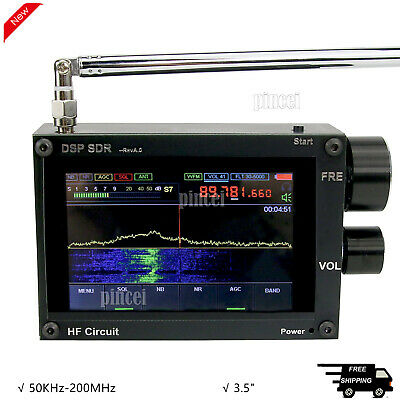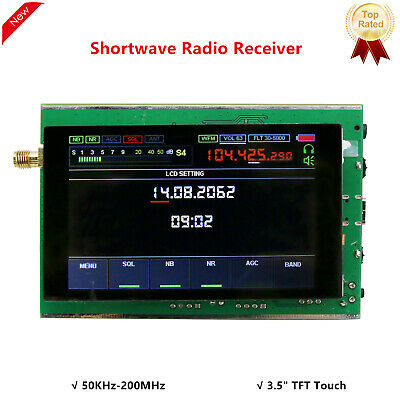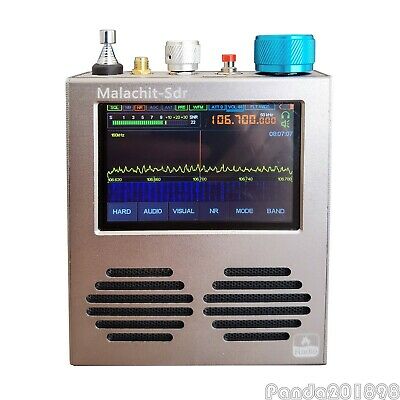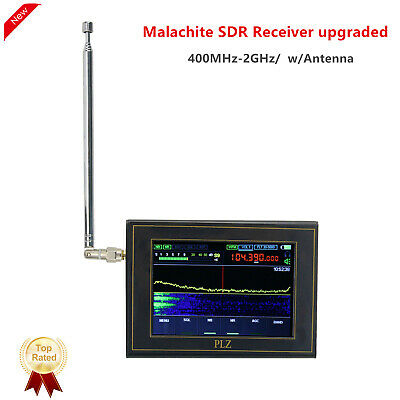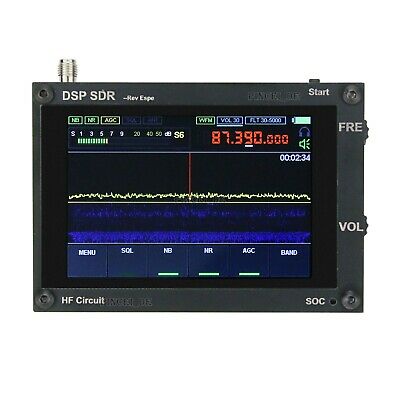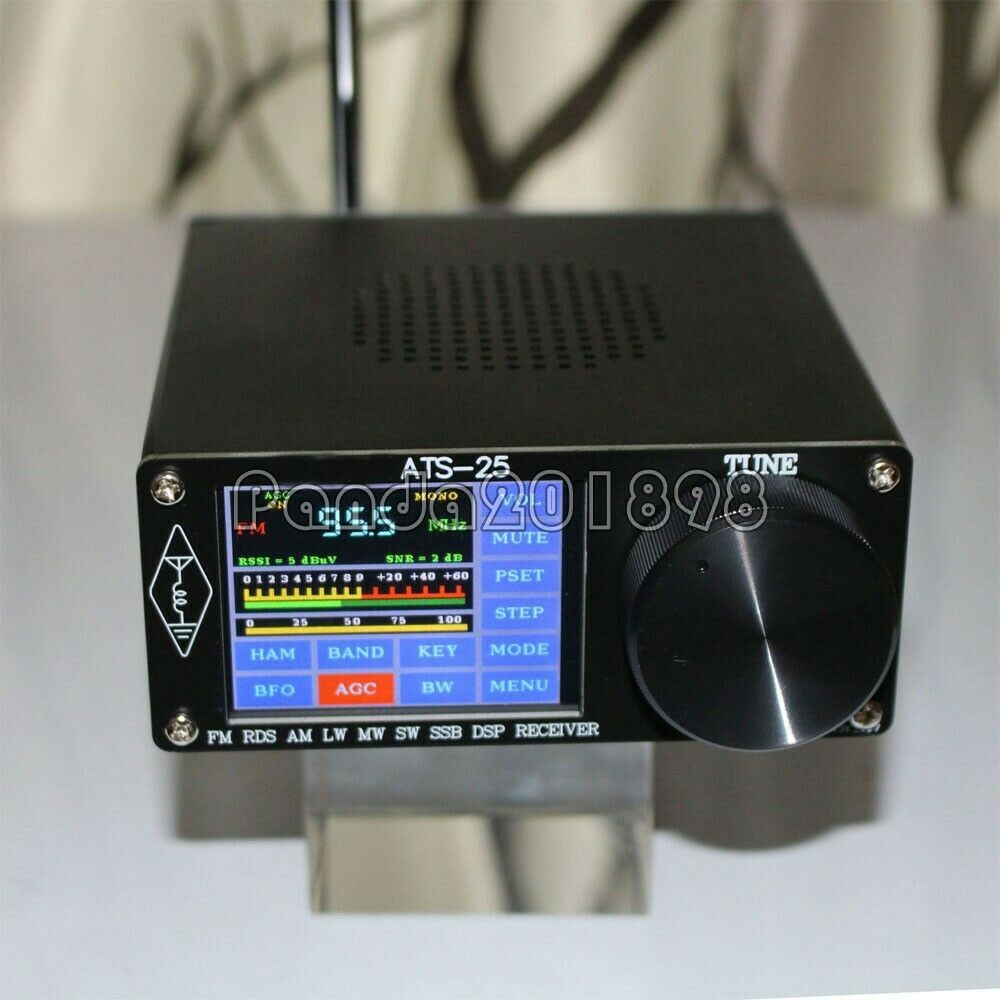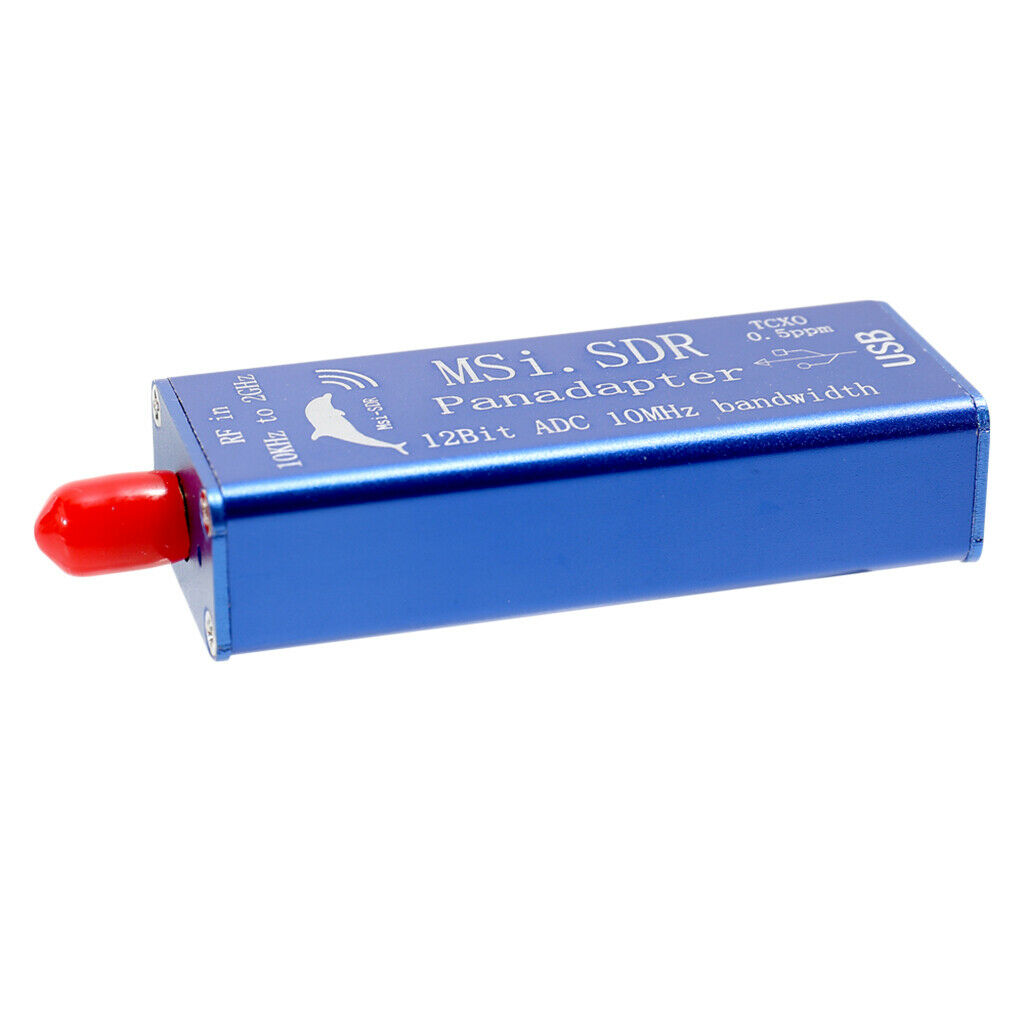-40%
SDRplay RSPduo Dual Tuner 1kHz-2000 MHz Wideband SDR Receiver
€ 129.35
- Description
- Size Guide
Description
SDRplay RSPduo Dual Tuner 1kHz-2000 MHz Wideband SDR ReceiverSupplied by SDR-Kits - Authorised Distributor of SDRplay Radios since 2015
The RSPduo is a radical addition to the range of SDRplay's RSP SDR Receivers, featuring dual independent tuners which are both piped though a single high-speed USB 2.0 interface.
A full featured 14 bit SDR Receiver, the RSPduo covers the entire RF spectrum from 1kHz to 2GHz giving 10MHz of spectrum visibility. Initially using Windows-based ‘SDRuno’- free Software supplied by SDRplay- you can simultaneously monitor two completely separate 2MHz bands of spectrum anywhere between 1kHz and 2GHz.
Superficially the RSPduo looks identical to the highly popular RSP2pro, providing three software selectable antenna inputs and enhanced stability and clocking features, and will be able to operate in a very similar way. However, it also offers a completely new and exciting set of usage scenarios such as:
1. Simultaneous monitoring of two widely spaced bands – e.g. 40m and 2m
2. Mixing and matching applications simultaneously – e.g. ADS-B and ATC scanning
3. Phase and time coherent demodulation of two receivers
The Receiver comes fully assembled and tested and requires a Personal Computer, one of the SDR Receiver Application programs as well as a suitable antenna.
When used together with SDRplay’s own SDRuno Software, the RSPduo becomes a high performance SDR platform
An open API allows developers to create new demodulators or applications around the platform.
Key Benefits:
Simultaneously receive on two totally independent 2MHz spectrum windows anywhere between 1kHz and 2GHz
Simultaneous processing from 2 antennas enables direction-finding, diversity and noise reduction applications
Ideal for cross band full-duplex reception, e.g. HF + VHF or VHF + UHF
Simultaneous Dump1090 and VHF ATC reception
Simultaneous monitoring and recording of 2 ISM bands
Covers all frequencies from 1kHz through VLF, LF, MW, HF, VHF, UHF and L-band to 2GHz, with no gaps
Receive, monitor and record up to 10MHz of spectrum at a time (single tuner mode)
External clock input and output for synchronisation purposes, or connection to GPS reference clock
Excellent dynamic range for challenging reception conditions
Works with popular EXTIO-based SDR software (available mid 2018)
Software upgradeable for future standards
Strong and growing software support network
API provided to allow demodulator or application development
Calibrated S Meter/RF Power and SNR measurement with SDRuno (including datalogging to .CSV file capability
Ideal for portable monitoring of ISM/IoT/Telemetry bands
World-class tecnical support from manufacturer
Key Features:
Dual tuner provides independent coverage from 1kHz to 2GHz using 2 antenna ports simultaneously
14-bit ADC silicon technology (not another 8 bit dongle!)
Up to 10MHz visible bandwidth (single tuner mode) or 2 slices of 2MHz spectrum (dual tuner mode)
3 software-selectable antenna ports ( 2 x 50Ω and 1 x 1kΩ high impedance balanced/unbalanced input)
High impedance antenna port (1kHz to 30MHz) with selectable MW notch filter and choice of 2 pre-selection filters
Software selectable AM/FM and DAB broadcast band notch filters for the 2 SMA antenna (1kHz to 2GHz) antenna ports
External clock input and output enables easy synchronisation to multiple RSPs or external reference clock
Powers over the USB cable with a simple type B socket
11 high-selectivity, built in front-end preselection filters on both the 2 SMA antenna ports
Software selectable multi-level Low Noise Preamplifier • Bias -T power supply for powering antenna-mounted LNA
Enclosed in a rugged black painted steel case.
SDRuno—World Class SDR software for Windows
Operating with two tuners simultaneously
Whilst the tuners can be controlled completely independently in terms of gain and frequency, there is one common factor that cannot (indeed should not) be separated and that is the ADC sample rate. Because of this, whichever tuner is set up first will dictate the sample rate of the second receive path. To make it clear, we designate the first receiver to be set up as the ‘Master’ and the second one the ‘Slave’.
In low IF mode, there will only be two sample rates available:
1. 6 MHz – This will deliver 14 bit ADC resolution, but with slightly inferior anti-aliaising performance at the widest bandwidth
2. 8 MHz – This will deliver 12 bit ADC resolution, but with slightly better anti-aliaising performance at the widest bandwidth
6 MHz operation should result in a slightly lower CPU load.
Package Contents:
1 pcs SDRplay RSPduo with "Getting Started" information.
Note:
The SDRplay RSPduo requires a standard USB-A plug to USB-B plug Cable. This USB Cable is
NOT
supplied with the RSPduo as the majority of buyers will already have such a cable available.
SDR-Kits Warranty
includes parts and labour and the cost of return shipping, provided the product has not been misused. Specifically the RF Power applied to the RSPduo Antenna sockets should be limited to a maximum of +10dBm to avoid damage to the RSPduo.
SDR-Kits
is an
Authorised Distributor for SDRplay Products
since 2015
This listing is a tax-free export from the UK.
Please note: Local Import duties, if applicable, are for buyer's account.
The item will be shipped via Tracked Airmail Service.
Claims for non-delivery can be made once 28 days have passed since due delivery date.
SDRplay RSPduo Specification:
General
Weight: 315g
Size: 95mm x 80mm x 30mm
Low Current: - Single Tuner: 180mA (excl Bias T)
-
Both Tuners: 280mA (excl Bias T)
Connectivity
·
USB 2.0 (high speed) type B socket
Frequency Range
Continuous Coverage 1kHz - 2GHz
Tuner 1 Antenna Coax Port Characteristics
1kHz-2GHz operation
50
Ω input impedance
SMA Female Connector
Tuner 1 High-Z Port Characteristics
1 kHz - 30MHz operation
1K
Ω input impedance (balanced)
Pluggable screw connector (CTB9208/3 plug supplied
Tuner 2 Antenna Port Characteristics
1kHz-2GHz operation
50
Ω input impedance
SMA Female Connector
Selectable 4.7V DC out (see Bias T)
Reference clock I/O
MCX Female connector
ADC Characteristics
Sample frequency: 2 - 10.66MSPS
14-bit native ADC (2 - 6.048MSPS)
12-bit (6.048 - 8.064MSPS)
10-bit (8.064 - 9.216MSPS)
8-bit (>9.216MSPS)
Bias T (Tuner 2 Port only)
Software selectable 4.7V @ 100mA
Maximum recommended input power
0dBm continuous, 10dBm for short periods
Typical Noise Figures (50 ohm)
18dB @ 2MHz
15dB @ 12MHz
15dB @ 25MHz
15dB @ 40MHz
3.3dB @ 100MHz
3.3dB @ 200MHz
5.8dB @ 340MHz
3.6dB @ 660MHz
4.3dB @ 1500MHz
5.0dB @ 1800MHz
T
ypical Noise Figures (High-Z)
14dB @ 2MHz
18dB @ 15MHz
IF Modes
Zero IF, All IF bandwidths
Low IF, IF bandwidths ≤ 1.536MHz
IF Bandwidths
200kHz
300kHz
600kHz
1.536MHz
5.0 MHz
6.0 MHz
7.0 MHz
8.0 MHz
Reference
High temp stability 0.5PPM TCXO
In-field trimmable to 0.01ppm
External Reference Clock
When an external clock is applied auto-detect will switch to the external reference. Ideally the external clock source should be connected to the RSPduo before power up.
Front End Filtering (Coax Antenna Ports)
Automatically configured
Low Pass
2MHz
Band Pass
2 - 12MHz
12 - 30MHz
30 - 60MHz
60 - 120MHz
120 - 150MHz
250 - 300MHz
300 - 380MHz
380 - 420MHz
420 - 1000MHz
High Pass
1000MHz
Notch Filters (Coax Antenna Ports)
FM Notch Filter:
>30dB 77-115MHz
>50dB 85-107MHz
>3dB 144-148MHz
MW Notch Filter:
>15dB 400-1650kHz
>30dB 500-1530kHz
>40dB 540-1490kHz
DAB Notch Filter:
>20dB 155-235MHz
>30dB 160-230MHz
Front End Filtering (High Z Tuner 1 Port)
Choice of 0-2MHz and 0-30MHz low pass
Notch Filters (High Z Tuner 1 Port)
MW Notch Filter:
>15dB 490-1640kHz
>30dB 560-1470kHz
Note: The notch filters above are software selectable and remove specific broadcast bands. Each port carries it own filters which can be independently selected.
Operating Modes
One receive stream, any IF mode or bandwidth, software selectable from either tuner, or..
Two simultaneous receive streams from both tuners using low IF mode and bandwidth limited to 1.536MHz maximum
